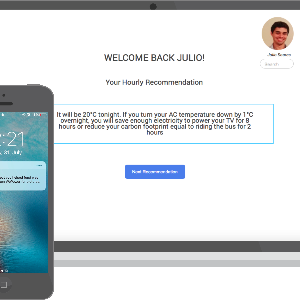 Teerth Brahmbhatt Aug 27, 2017 05:29 | In terms of the light bulb I think this is a really useful idea. What are some of the cost breakdowns for this product?
|
 Pia Jensen Aug 29, 2017 12:11 | Interesting idea, but, I have concerns regarding the health consequences of smart-meters, the hackable nature of IoT technologies, and the fact that some countries are not utilizing smart-metering technology. |
 Aadhithya Sujith Sep 2, 2017 11:42 | Thanks for your proposal, I like the approach of using complex data from electrical systems translated into simple and easy to understand language with visualizations that can encourage a behavioural change in the use of energy.
Thanks & regards Aadhithya |
 Ioana Dragos Sep 5, 2017 05:04 | Proposal contributor Thank you for your comment. It is a valid concern. Regarding hackable nature of IoT technologies, it is true that energy consumption data is highly sensitive information and the highest precautions should be taken regarding the handling of this information, therefore partnering with utility companies and municipalities is key. Regarding the countries that are not utilizing smart-metering technologies, our proposal focuses first on three countries that do use them. The intention is to leverage these existing devices in these countries and create motivation for other countries to implement smart-metering technology as well. |
 Ioana Dragos Sep 5, 2017 05:48 | Proposal contributor Thank you for your comments and questions. I will answer them in the order you wrote them:
|
 Ioana Dragos Sep 5, 2017 05:10 | Proposal contributor Thanks for your questions! To answer them:
|
 Drew Depriest Nov 3, 2017 08:16 | RE: your point number 4 - can you share any links or more information about no-cost smart meters in Portugal? I'd love to learn more about them. Curious if the model of that particular program could be recreated elsewhere.
|
 Ioana Dragos Nov 5, 2017 03:19 | Proposal contributor |
 Caroline Liu Nov 24, 2017 12:03 | Thank you for submitting your contest proposal. A Climate CoLab Impact Assessment Fellow who specializes in buildings has conducted an impact assessment of your proposal which you can find under the “IMPACT” tab. Please review the documentation and model parameters. If you have any questions or suggestions, you can contact Sharon Chou at cnorahs. Regards, Impact Assessment Fellows |
